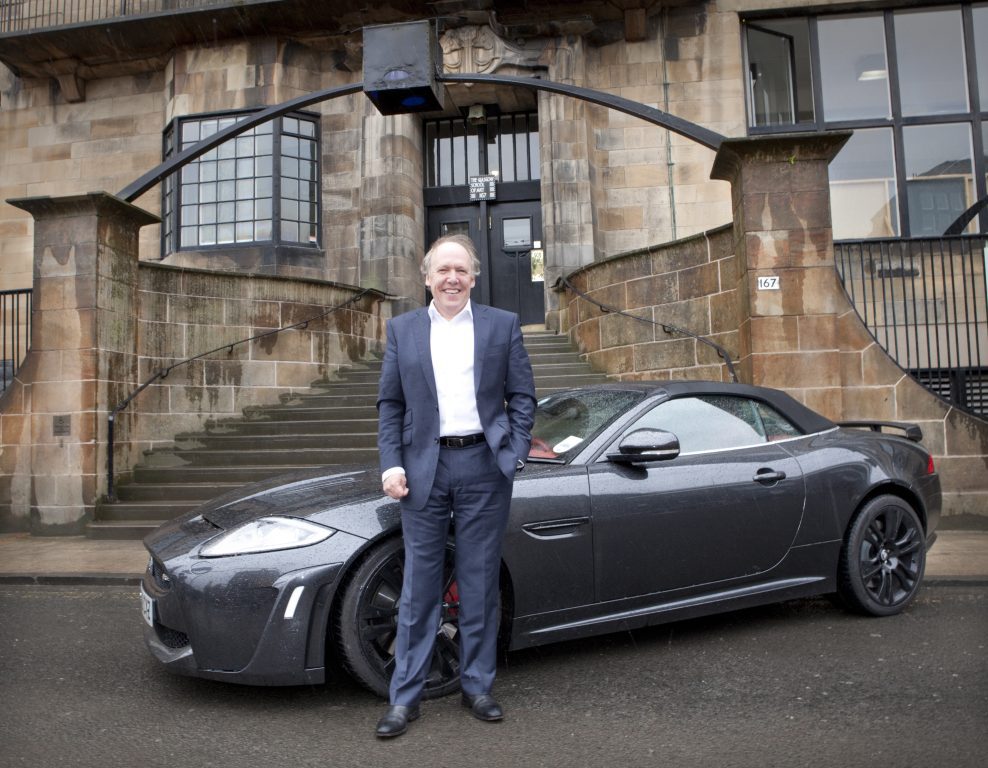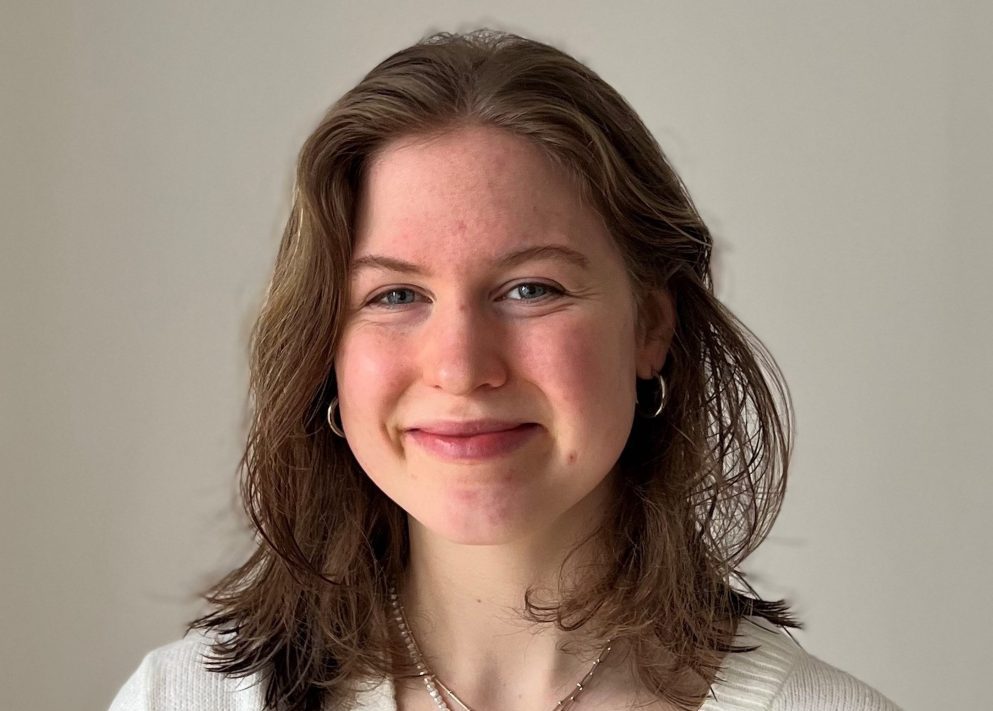4th year PDE student, Zoe Graham, set to work with leading car designer, Ian Callum, to explore design & engineering solutions that could help thousands of disabled motorists
22-year old Zoe Graham from Dumfries, a fourth-year BEng student of Product Design Engineering at The Glasgow School of Art/Glasgow University has won the chance to work with leading design consultancy, CALLUM and Motability Operations to help design and engineer an electric Wheelchair Accessible Vehicle (eWAV) prototype it was revealed today (22 February 2023). The aim is to encourage more industry innovation and help ensure future Electric Vehicle mobility is accessible for everyone.
Motability Operations supplies approximately 30,000 Wheelchair-Accessible Vehicles (WAVs) through the Motability Scheme, with around 4,000 applications each year for the small and medium WAVs that are generally less cumbersome and cheaper to run. However, these customers face additional practical challenges and higher costs as the industry moves towards Electric Vehicles. The architecture of an Electric Vehicle, with the battery located in the floor, proves problematic for eWAV conversion as it reduces internal height and usable space in the cabin while also limiting the available payload.
Dumfries-born Zoe was one of 150 students at the GSA and the University of Coventry to take part in “design hacks” at which the students proposed solutions to the complex issue of providing accessibility and utilising internal space to make electric vehicles adapted for wheelchair users.
Along with Yikuan Zhang, a third-year Bachelor of Arts student studying Automotive and Transportation Design at Coventry University, Zoe will now have a paid placement at CALLUM to progress an eWAV prototype under the guidance of its design director and GSA alumnus, Ian Callum CBE (who designed the Aston Martin car driven by Pierce Brosnan as James Bond in Die Another Day) and engineering director Adam Donfrancesco, as well as the support of Motability Operations and insight from its customers.
“When I read the eWAV brief I felt inspired,” says Zoe. “It’s such an important and interesting design and engineering problem that could really benefit people. Even as a school child, I wanted to make robotic limbs for people with disabilities: I would like to use my skills to design products that continue to improve the quality of people’s lives. With my initial eWAV design, I wanted the user to have the best experience possible while also offering something ‘cool’ that has the new-age, exciting feel that most electric cars have today.”

Ian Callum, design director at CALLUM, was impressed by the ingenuity of the solutions suggested by all the students: “This is an incredibly complex problem that needs to be addressed today to ensure that no one is left behind as the automotive industry moves towards its next electric evolution,” he says. “It’s wonderful to get a glimpse at the next generation of talent and ideas that will soon enter the sector.”
During the judging process, the teams at CALLUM and Motability Operations were impressed by Zoe and Yikuan’s creativity and how she conveyed her novel solution, which has the potential to create more space for users.
“Both Zoe and Yikuan stood out for their understanding of the brief, their novel and creative ideas, and how well they were able to communicate these. At CALLUM we understand the importance of supporting the next generation of talent, of nurturing the innovators of tomorrow and sharing ideas and knowledge. We are looking forward to working with them to develop a viable, scalable eWAV solution to drive further innovation in the field and support all motorists to make the transition to EVs.”
Andrew Miller, CEO at Motability Operations, says: “WAVs provide freedom and independence for lots of our Motability Scheme customers every day. Solving this problem is vital, so we can support our WAV drivers when they switch to an electric vehicle in the future. Everyone at Motability Operations is excited to see this opportunity come to life and we hope Zoe and Yikuan, along with the team at CALLUM, can develop a working solution for the WAV industry.”
As an alumnus of The Glasgow School of Art Ian Callum is part of the institution’s international Creative Network of graduates.
“The Glasgow School of Art’s Creative Network was set up in 2019 as an innovative, vibrant and dynamic way to support and maintain relationships with our global network of graduates and industry partners,” says Creative Network manager, Sam DeS antis. “Enabling our graduates to collaborate and to instigate projects with our students is one of the founding principles of the initiative.”
“We are delighted that our current students have had the opportunity to learn from and work with Ian Callum, and that Zoe will now have the chance to be a part of this important and innovative project.”
Zoe and Graham and Yikuan will begin work with the CALLUM design and engineering teams in March to develop an eWAV prototype that will be revealed in late autumn 2023.





